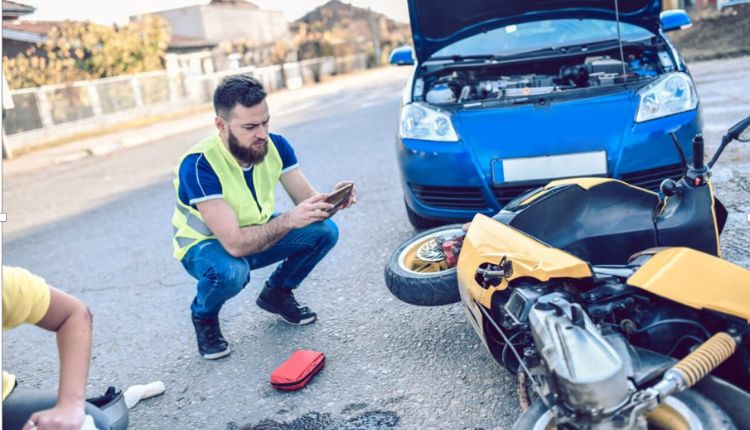Getting into a motorcycle accident is scary. One moment, you’re cruising down the road. The next, everything changes. Whether it’s a minor crash or a serious wreck, what happens afterward can be overwhelming. You might have injuries, medical bills, and a damaged bike. With all that stress, you might wonder—should you even file a motorcycle accident claim?
This blog is here to help you understand that decision better. Sometimes, the process seems confusing, especially when you’re hurt or shaken up. But taking the right steps early on can protect your rights and your future. One of the smartest moves you can make is to get help from a motorcycle accident attorney. They know how to handle insurance companies, paperwork, and the legal side of things—so you don’t have to do it all alone.
Why Filing a Claim Matters
Filing a motorcycle accident claim isn’t about being greedy or trying to “sue someone.” It’s about covering the costs that you’re legally entitled to after someone else’s mistake. Motorcycle crashes often lead to serious injuries. That could mean ambulance rides, emergency room visits, surgeries, physical therapy, or even long-term care. All of these things cost money.
If the accident wasn’t your fault, you shouldn’t have to carry that burden on your own. A claim can help you recover those costs, including:
- Medical bills
- Lost wages
- Bike repairs or replacement
- Pain and suffering
Filing a claim is your way of saying, “This wasn’t my fault, and I need help getting back on my feet.”
When Should You File a Claim?
The best time to file a motorcycle accident claim is as soon as possible after the accident. Here’s why:
- Evidence fades: Photos, skid marks, and memories of what happened can all disappear quickly.
- Witnesses may forget: If people saw what happened, their statements are more accurate right after the crash.
- Legal deadlines exist: Most states have time limits (called statutes of limitations) for filing a claim. If you miss it, you could lose your chance.
The earlier you start the process, the stronger your claim can be.
What If You Were Partly at Fault?
Some people think they can’t file a claim if they were partly to blame. But that’s not always true. Many states use something called comparative negligence. That means you might still get compensation even if you were partly responsible. It just reduces the amount you can recover.
For example, if you were 20% at fault, your final settlement might be reduced by that same percentage. Still, it’s better than getting nothing. A good attorney can help you figure out how your state’s rules apply to your case.
Dealing With Insurance Companies
Insurance companies might seem friendly at first, but remember—they’re businesses. Their goal is to pay out as little as possible. They might try to rush you into a quick settlement, downplay your injuries, or even blame you for the crash.
That’s where having legal support makes a difference. An attorney can step in and deal with the insurance adjusters for you. They’ll help you avoid lowball offers and make sure your rights are protected every step of the way.
Is It Worth It?
If your accident caused injuries, medical bills, or major damage, filing a claim is usually worth it. Even if the injuries seem small now, they might get worse later. Filing a claim helps ensure you’re not stuck paying for someone else’s mistake down the road.
And if you’re ever unsure, talking to a motorcycle accident attorney doesn’t cost anything in most cases. Many offer free consultations. You can ask questions and get an idea of what your case might be worth—without any pressure.
Final Thoughts
Motorcycle accidents can turn your life upside down in a second. But you don’t have to handle the aftermath alone. Filing a claim is not just about money—it’s about getting justice and protecting your future.
Take care of your health first. Then take the steps to protect your rights. If you’re unsure where to begin, don’t hesitate to reach out for help. You’ve already survived the crash—now make sure you recover fully, too.






